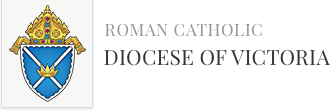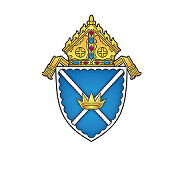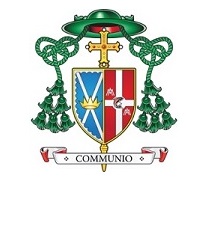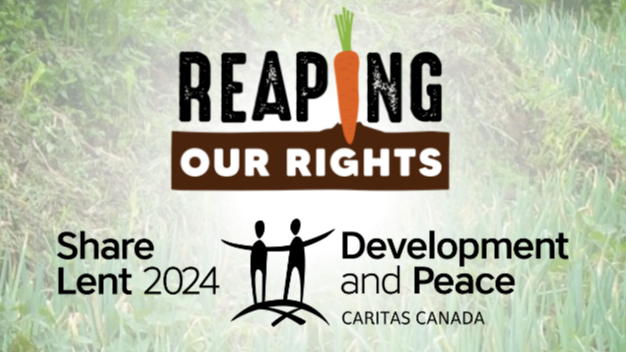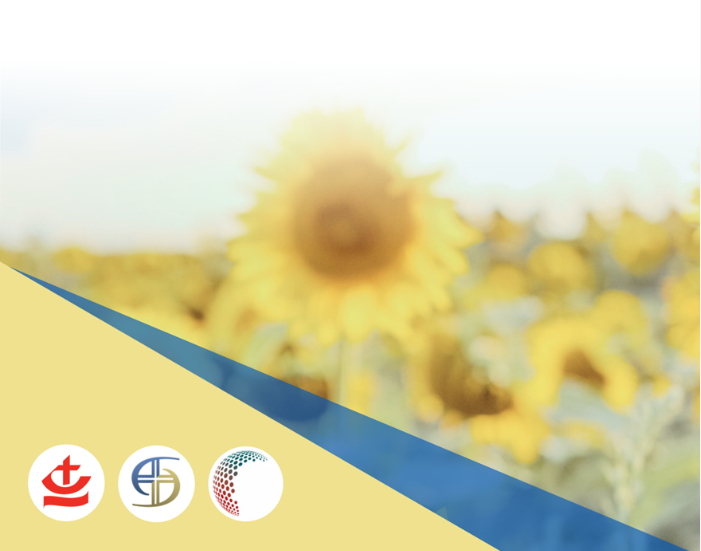March 10, 2018, saw forty participants welcomed to ‘The Sunflower Symposium’, a day-long special gathering at Our Lady Queen of Peace parish. Spring was in the air, but this was no horticultural event, this was a Lenten lecture and discussion offered by Dr. Patricia Rooke examining ‘The limits and possibilities of forgiveness’—specifically, “a symposium examining the Christian and Jewish approaches to repentance, reconciliation and forgiveness.”
A rich, challenging and full day, participants were tasked with a number of questions, based on their reading of Simon Weisenthal’s book, The Sunflower. All participants had been asked to read this challenging account of Weisenthal’s remarkable and horrific experience as a Jew condemned to the horrors and the finality of a Nazi concentration camp.
In his account, Weisenthal, during work duty at a hospital, is summoned by a nurse to a dying man’s room. The man is a young SS officer badly wounded, unrecognizable through his bandages, and in his last hours. He has requested to speak to a Jew to unburden himself from a troubled conscience. He is seeking forgiveness from a Jew for a horrible act of murder committed against innocent Jews in which he participated, and which continues to haunt him.
Weisenthal, already traumatized by the privations, the daily, senseless brutality and the prospect of death at any moment, graciously hears the man out, in silence, and then leaves the man, in silence. It is, however, a troubled silence which will stay with Weisenthal for the rest of his life. Should he have, could he have offered forgiveness on behalf of his fellow Jews to this dying, repentant SS officer?
On his return to the concentration camp, Weisenthal’s dilemma is magnified by his fellow inmates’ divergent responses, ranging from that of a devout Jew to a Catholic seminarian. Reading the account, one cannot avoid placing one’s self in the author’s shoes. From the comfort of our buffered and privileged lives, weighing the pros and cons is as unsettling as it is confounding. And the reader is not let off the hook, for at the very end of the book Weisenthal actually leaves the reader with the question, “What would you have done?”
Apart from such particular factors in this case as intent and circumstance, what complicates the answer to this question is the differing theological perspectives which Jews and Christians bring to the question. On the human level, Jews maintain that murder is an unforgiveable crime, because only the victims are able to forgive the perpetrators, and because they are no longer alive, they cannot forgive them. For Christians the teachings of Jesus on the limits forgiveness are clear, “I do not say to you seven times, but seventy times seven,” (Matthew 18: 21 -22).
Christians maintain there is no limit to God’s mercy for the repentant sinner; we have ready access to Christ’s forgiveness by virtue of his merits on our behalf, when He took on our sins suffering crucifixion and death for our redemption. While Catholics point to the ready availability of Confession, this can be problematic for other Christians or people of other faith traditions for whom it is not fully understood. This gift has also been caricaturized in the imagination of the popular mind as a “get out of jail free” card—conjuring images of deathbed conversions of Mafia Dons that open the gates of heaven.
God’s mercy and the Church’s dispensing of it, improperly understood and underappreciated, can lead to a certain trivialization, what theologian Dietrich Bonhoeffercalled ‘cheap grace’: “the preaching of forgiveness without requiring repentance, baptism without Church discipline. Communion without confession. Cheap grace is grace without discipleship, grace without the cross, grace without Jesus Christ,” (The Cost of Discipleship, 1937, Dietrich Bonhoeffer)
So the uncommitted, unconvincing nominal Christian, comfortably self-satisfied in his own ‘cheap grace’ is not only a poor witness, but essentially represents a serious obstacle, for the uninformed, to any true understanding or appreciation for the Church’s inexhaustible treasury won by Christ’s sacrificial merits.
So, we return to that pivotal moment in Weisenthal’s account in the hospital room with the dying SS officer. Let us consider some of the conflicting undercurrents Weisenthal may have experienced in the encounter. Was the SS officer using Weisenthal, a Jew, to assuage his troubled conscience: a man in his final moments grasping for his Catholic past, gambling on ‘cheap grace’? Should Weisenthal be that voice offering forgiveness for the now voiceless massacred Jews, or could he? Was Weisenthal denying a dying man his final desire to unburden his soul and find peace? What was the dying SS officer’s actual motivation in asking to speak to a Jew? We do not know. Was Weisenthal’s silence prompted by reluctance, fear, shock, or dread? We do not know.
Silence
On a metaphysical level, during the extremely dark period of the Holocaust, the Jews as God’s Chosen People could not understand God’s silence and consequently many felt abandoned in the face of the suffering and the horrific atrocities leveled against His People—why was the God-who-saves silent?
Christian theology in reflecting on Christ’s life passion and resurrection, takes a radically different view. Christ in taking on human form experienced everything humanity experiences good and bad, apart from sin. The depths of Christ’s agony on the cross must have been as deep on a spiritual level as they were on a physical level, “My God, my God why have you abandoned me?” (Matthew 27: 46).
For the Christian, suffering surrendered and offered to Christ, who surrendered his life to offer eternal life to humanity, transforms suffering into something redemptive. In other words suffering united with Christ’s passion is liberating—Christ accompanies and sustains those who suffer—they will share in His redemption and in His glory. Suffering in the Christian understanding, then, is not the end of the story; trusting in God’s saving love, even in the midst of darkness and silence, holds the promise of dawning resurrection.
The themes of: the nature of forgiveness; God’s apparent silence; the essence of repentance; the meaning of suffering and abandonment, all formed the pathways and the rockery borders for the vibrant gardens of the two discussion sessions which marked the Sunflower Symposium.
Despite a full day of information, analysis, and discussion, participants came away with some answers, but more questions—deeper questions—marked by silence.
This day also marked a milestone for Dr. Patricia Rooke as it was her last public education event in Victoria, spanning sixteen years of awakening awareness and providing people with knowledge of the faith throughout the Diocese. Upon retiring from teaching History and Education at the University of Alberta and moving to Victoria, Patricia developed a two-year course entitled, Exploring the Catholic Faith, followed by other courses and seminars including: A Cloud of Witnesses: The Early Christians & The Middle Ages, Encountering Christ in the Sacraments, Judged on Love Alone, Formation of Conscience, and Pinocchio speaks with Jiminy Cricket. She has also conducted a number of seminars, including Salvation is from the Jews, The Sunflower: the Problem of Forgiveness, andThe Sunflower – the Limits and Possibilities of Forgiveness. In addition, Dr. Rooke has mentored many students and converts, contributing to a greater understanding of the role of the laity in society and the Church, including publishing a book entitled Judged by Love Alone, the proceeds of which were donated to the Church.